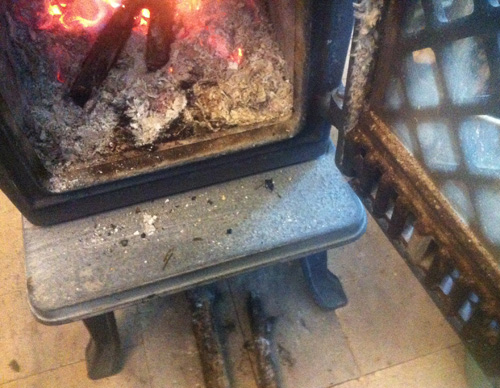By Richard Whiteford
Sierra Club Member & Environmental Communications Consultant
Sierra Club Member & Environmental Communications Consultant
Congressional legislators who deny climate change typically focus on free market economics and fail to acknowledge the destructive impacts and associated costs that we experience now from climate driven extreme weather events.
They grouse about the Obama Administration’s request for a 2014 climate change budget of $11.6 billion and the expansion of government agencies to combat climate change.
While realizing that the Republican party’s platform rests on smaller government and cutting government expenses to the bone, you can’t help wondering why their budget fetish ignores the fact that, according to the U.S. Treasury Department, between 2011 and the first quarter of 2013 extreme weather events cost us more than $136 billion and that doesn’t count the endless numbers of flood, sand storm, drought, and wild fire damages that happened since then.
They claim that while the President stated a willingness to work with Congress toward enacting a bipartisan, market-based scheme to reduce GHG emissions, the Administration has also taken steps to move ahead with Executive Branch actions to address climate change concerns without Congressional support.
They express outrage that President Barack Obama has advanced a series of unilateral regulations without appropriate legislative review – including a proper assessment of the cumulative influence, regional effects, and distributional impact of such actions on states and localities – would do more harm than good.
The Republican Party, while vehemently denying the existence of global warming, ditched every proposed climate bill leaving the Obama no other choice.
At a time when our economy is struggling to recover, increasing the cost of energy and cutting more American jobs is not the right way to move forward.”
Here again, like so many people, these legislators fail to recognize the real issue because their only measure is money, revenues in particular.
The critical issue is: in the past 150 years humans increased carbon dioxide levels in the atmosphere by 117 parts-per-million by burning fossil fuels. For over 800,000 years before that CO2 levels hovered around 280 parts-per-miliion.
Now because we pump 90 million tons of CO2 up there every 24 hours, CO2 has risen to an average of 397 parts-per-million and actually spiked into the 400 parts-per-million level twice in early 2013. It won’t be long until that will become the average as it continues upward.
Burning fossil fuels has already raised the global temperature from preindustrial levels by 0.8 degrees Celsius (1.4 degrees Fahrenheit) and we are already experiencing sea level rise, extreme storms, droughts and wildfires around the planet. Even more alarming, 80 percent of the Arctic ice cap melted in the summer of 2012.
Scientist believe that we can’t allow the preindustrial global temperature to rise higher than 2 degrees Celsius or human survival will be very challenging. We are almost half way there now.
The oil, gas and coal industries and their paid henchmen like the Heartland Institute and bought politicians distract the public with red herring issues like claiming that switching to clean energy will hurt the economy, kill jobs, and cause energy shortages while overlooking the job creation that clean energy creates.
What is tragically overlooked by them and the media is that if humans want to survive on this planet we have to stop burning fossil fuels as soon as possible. Scientists say that we can’t put much more than another 565 gigatons of CO2 into the atmosphere without disastrous results. At this time, financial analysts calculate that there is already 2,795 gigatons of CO2 contained in readily available oil, gas and coal reserves.
That’s five times more CO2 than we can afford to burn and expect to survive yet the plan remains drill baby drill; burn baby burn.
There is enough carbon just in the Canadian Tar Sands oil deposits to send the global temperature above the 2 degree limit. That is the reason environmentalists are protesting the Keystone XL Pipe Line. We just can’t afford to burn that carbon and expect to survive.
Again, the critical issue is carbon output. If we keep pumping CO2 into the atmosphere jobs and the economy will be a moot point. What good will money be if we don’t live to spend it?
Our first step should be to tax all carbon at its source of extraction and give that money directly to our tax-paying citizens to cover the increase in price that fossil fuels will go through until we are 100% clean energy and stop burning them. This points to another blind spot. Legislators want to cut subsidies to clean energy but they vote in lock-step to support the $90 billion in tax subsidies that the oil companies get from taxpayers each year in the name of “leveling the playing field.”
The bottom line is, leave carbon in the ground or humans won’t be around.
Originally published in the Patriot News Op-Ed on December 16, 2013.













.jpg)
